Published Jul 16, 2018
Trek Directors' School: Tim Russ
Trek Directors' School: Tim Russ
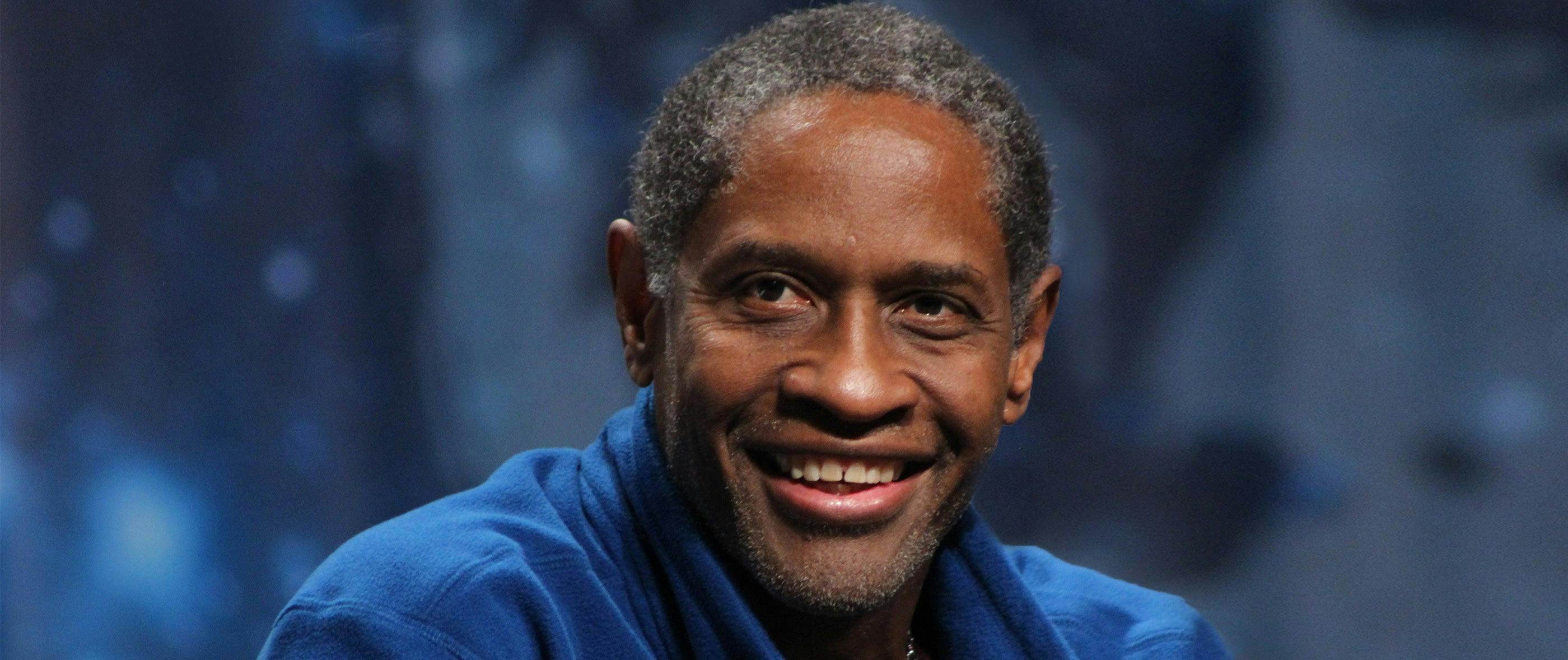
Tim Russ did the logical thing. The actor, who played Tuvok on Star Trek: Voyager, had looked on as several fellow Trek actors settled into the director’s chair, and he then let it be known that he too aspired to direct. Russ got his chance in season four, when he was tapped to realize that season's 23rd episode, “Living Witness,” written by Bryan Fuller based on a story by Brannon Braga. In it, 700 years after encountering two warring species, the Kyrians and Vaskans, The Doctor testifies as the sole witness in a war crimes trial. Russ – as part of StarTrek.com’s ongoing series of stories about the unofficial Trek directors’ school initiated by Rick Berman – chatted with us about his desire to direct, getting his shot with “Living Witness,” why he didn’t direct subsequent Voyager episodes, and his current projects, which include a movie that, quite appropriately, he acts in and directed.
At what point did you realize you wanted to direct… in general, and Voyager specifically? And how did you approach Rick Berman with the idea?
It was around the second season of Voyager. I knew the option was there to do so. I approached Rick like the others had before me. And he laid out the routine to get a slot.
Jonathan Frakes set the template for the whole "directing school." What do you remember of that two/three-year process, sitting in script sessions, breaking down camera moves, shadowing directors, visiting the editing bay, etc.?
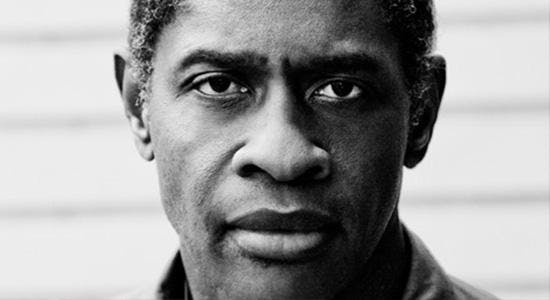
Mostly the internship required observation of directors on set, sitting in the editing bay for hours watching rough assemblies of scenes, and sitting in on production meetings etc. I also just watched the directors who were working on the episodes week to week, while I was already working on set, and asked questions, etc.
What element, early on, was the hardest for you to grasp?
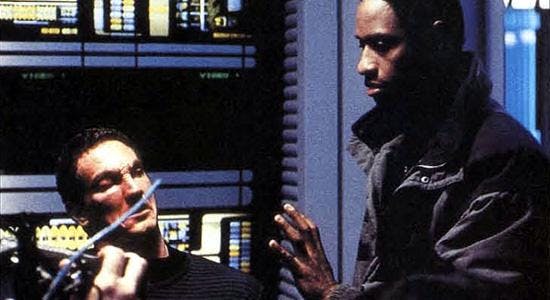
I had already taken directing classes and shot several short films before doing the internship, so it wasn't a case of having difficulty with elements. It was more so getting familiar with things to learn such as special effects shots. That, and working within the bounds of what the producers liked and didn't like to see as to styles and certain types of shots.
You were handed the script for “Living Witness.” What did you make of the story, and what did you think you could do, visually, to bring it to life?
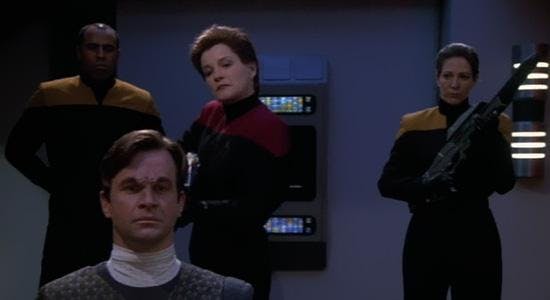
I thought it was a very good story. I was lucky to have been given that one. It dealt with history, which is a favorite subject of mine. I had the rare opportunity to shoot my regular castmates as their "evil" selves in the false version of an historical moment. So, I designed the shots and angles more extreme on the characters, to give them a more sinister look.
What do you remember of your first day on set? Were you excited? Nervous? Both? Fully prepared?
I was prepared, and a little nervous. But the producers didn't come down to set to watch, which I was surprised by. I was interested in seeing how my castmates would portray their evil selves. It was a kick to see each one of them deliver convincing and captivating performances.
Did the cast have any fun at your expense or were they on their best behavior for you?
No, they were all cool. My DP gave me a cap with "First Time Director" on it.
Speaking of the cast again, the script pushed several of them out of their comfort zones: Robert Picardo playing three roles, Kate Mulgrew going really dark. How did you enjoy helping them shape their performances?

I didn't have to. They came to the table already prepared. I was much more interested in getting the shots and coverage right.
How pleased were you with the finished episode at the time? And if you directed that same episode now, what might you do differently?
I was thrilled with the episode. I got to use one of the sets they built that they used in the following Trek feature film. That was pretty cool. And I wouldn’t have done that much differently. When you shoot within the confines of an established series you are a guest director, so there are limitations as to what you can and can’t do. The look of the piece is already established.
“Living Witness” was very well received. Why did you not direct subsequent episodes?
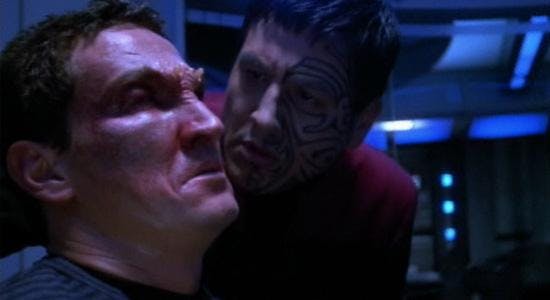
Because, by that time, everybody wanted a slot to direct. And I’d started my internship later in the series run. By that time, lots of people put their hats in the ring. I almost got one more, but its' up to the producer's discretion as to who the slots go to.
You went on to do quite a bit of directing, in addition to acting. How grateful are you to Berman and Voyager for helping to start it all for you?
I can't say enough about having that opportunity to direct on the show. I am forever grateful for making it possible.
Your latest film is Miles to Go, which you act in and directed. Tell us a bit about the story, about the experience of making it, and where/when fans might see it?
Miles to Go is the new title, and it's a story about a woman who is hooked on heroin but manages to kick it when her brother goes missing, putting her on a collision course with a drug kingpin. It was a challenge making it as it was low budget, but a lot of people came together to make it happen. The producers are just now looking at several distribution deals, so I will keep everyone posted on Facebook and Twitter when it's done.
IMDB references a half-dozen other films with you attached as director. What is actually next for you?
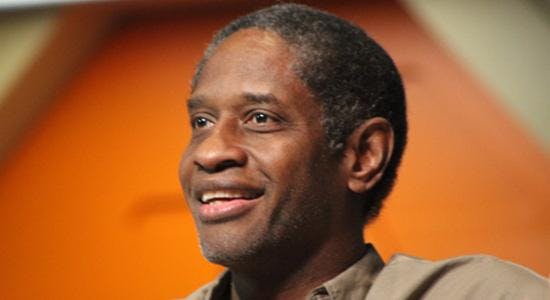
I am attached to several films at present, including one of my own. But it all depends on producers getting the projects off the ground. It'll happen, but you’re just never sure when until it happens.
